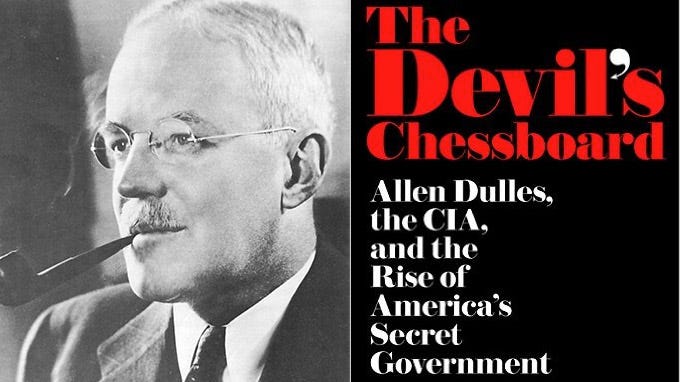Gravity's Rainbow - Part 2 - Chapter 7.2: Hopeful Horizons
Analysis of Gravity's Rainbow, Part 2 - Chapter 7.2: Slothrop in Zürich, the Argentinian Anarchists, Travels to Geneva, Jamf's Grave
After leaving Nice, Slothrop arrives in Zürich, Switzerland as per the instructions of Blodgett Waxwing. He gets there via train where, through his dreams and daydreams, he observes the landscape changing around him. When at one time there were the foggy alps, cows and cowbells, fragrant scents of rain and grass on hillsides, there are now “army convoys waiting at the crossing” and “a single damaged landscape” (257). This damaged landscape is not the destruction that many people view it to be (though, to many, it is that — it just depends who you ask and which side of the line you land on). Instead, it is the purposeful first step in the reconfiguration of a world similar to a building, or a city, that must be razed to build something new atop. Switzerland’s reconfiguration has to do with its supposed neutrality, which while true on a geopolitical basis, is completely false on a class-based analysis. Their neutrality allows them to utilize their large function as a tax haven to shelter the funds of global capitalists and corporations, acting as the ‘neutral ground’ where countries who are technically against each other (think Britain and Germany firing the same rockets at each other a la 2.5 and earlier in 2.7) will still mutually benefit financially. Though as Slothrop sees, this requires the destruction of the more spiritual essence of a country.
Nonetheless, he arrives peacefully in Zürich where he follows Waxwing’s instructions to check in to the Hotel Nimbus and meet up with a rep named Semyavin who describes the pre-War state as something less sectioned off than it is now, where commodities were once traded and “currency […] was no more than a sideline” (258). Yet now, currency has taken precedence in the market. These commodities — drugs, sex, or any luxuries — were all a part of one mass, but now they have been cordoned off into distinct districts. To get sex, you must go here; for drugs, here; for a bit of luxury, this marble clad district over here. Each one builds its own distinct market within the greater War Market and the post-war cityscape. And the new commodity of choice is information, because what better way is there to profit on those other more primitive forms of commodity than to have the esoteric knowledge of their intrinsic functions, their coming trade values, the new and improved forms that will be hitting the market soon. Even better, “Someday it’ll all be done by machines” (258) — the algorithm will perfect itself within the system, becoming more and more unpredictable to those on the outside, and more manipulable to those on the inside.
Slothrop’s search for the information market leads him to seek his target at three different cafes, all of which he spends hours sitting at and scoping them out. Through a musical number, Loonies on Leave!, Slothrop views the further mystification and muddling of the Market, where corporate spies can no longer be distinguished from the insane, the insane from the regular, the regular from the spy. It has all become marketing and advertising, lying to make an extra buck, hyperbole and exclamation and disorientation to the point that one believes they need this new commodity now. These, though, are commodities for the People, and Slothrop is America; he has no use for these menial everyday objects. He has come for information that only he could use: those “Synthetic rubber[s] or gasoline,” “aniline dyes,” and “codebooks” (260). But even these things which he would usually have interest in serve no purpose to him in the moment, for like in Nice when told to turn back by the chambermaid, he is hell bent on escaping Their grasp, and he feels that Waxwing’s path is the only way out.
A few days of sitting in cafes later, another interesting product is offered him as Mario Schweitar emerges from a corridor, asking Slothrop, “You interested in some L.S.D.?” (260). Schweitar reveals he is from Sandoz which, if you recall earlier, (2.7) is the company where “the legendary Dr. Hofmann made his important discovery” (250) — LSD, or at least one of the major compounds used to produce it — and which merged with Ciba, Geigy, and Grössli Chemical Corporation to eventually form Psychochemie AG, the Swiss cover company for IG Farben. With a little digging, Slothrop learns that Schweitar is “very tight indeed with Psychochemie AG,” and so asks him for the information that he has been seeking: “‘I’d sure like anything they got on L. Jamf, a-and on that Imipolex G’” (260). But Schweitar (after revealing Jamf’s death to Slothrop, who reacts in shock) states that Imipolex G has been the company’s albatross — its problem child — being a polymer used for physical purposes amongst indole people. Indoles are “extensively explored heterocyclic ring systems with a wide range of applications in pathophysiological conditions such as cancer, microbial and viral infections, inflammation, depression, migraine, emesis, hypertension, and so on.”1 They also happen to be coal-tar derivatives which are used in the synthesis of LSD. So whereas these massive chemical conglomerates do want to fund things such as various poisonous polymers, there is some occult spirituality surrounding the Elite and their interest in psychologically or biochemically altering substances such as LSD (among other prescriptive treatments), because while these regular, though cancerous, polymers focus on the death of the population, indoles focus on the control, and control is how the Elite plan to maintain their status. So, what if They were able to polymerize an indole? merging the realms of physical death with that of the mind and spirit.
But in the end, Shweiter does say he could get this information since he works closely with Psychochemie AG, but it would just take a lot of effort, and so he requires five hundred Swiss francs from Slothrop in return. However, given Slothrop is low on funds, he returns to Semyavin — Waxwing’s rep at Hotel Nimbus — for advice. His advice: well, the zoot suit has to go, and Slothrop can likely sell it for a bit given its new status as a cultural commodity in this time period. At least Semyavin provides Slothrop with something of a slightly higher, or at least more ubiquitously respected, class — “a bundle of workmen’s clothes” (261) representing the average working-class person as opposed to a more specifically oppressed minority class. Slothrop, however, liked his previous identity, just as he liked the one before, and as he (as America) continues to devolve further and further into various identities to the point that he can no longer distinguish his true self from his disguised self, we will see his further degradation.
Having pawned his suit and become further paranoid that They are still onto him — believing They followed him to Zürich — Slothrop finds himself at the Odeon, a cafe known for hosting patrons such as “Lenin, Trotsky, James Joyce, Dr. Einstein” (262) and more, all figures focused on the proletariat — Lenin and Trotsky being Marxists, Einstein being open to socialism and highly critical of capitalism, and Joyce writing about the average working class citizen in his major works.2 It is within this café that Slothrop meets Francisco Squalidozzi, an Argentinian Anarchist who, along with a few others, including Graciela Imago Portales, “hijacked an early-vintage German U-boat” and “sailed it back across the Atlantic […] to seek political asylum in Germany” (263). The travels and purposes of the Argentinian Anarchists both mirror and contrast that of the German Nazis when the war on the Eastern Front ended. Where, in Germany, the Nazis fled the country to Argentina after the downfall of their fascist leader, in Argentina, the Anarchists fled to Germany due to the rise of a Perón, another fascist leader.3 What Slothrop is seeing, as he has seen before, is that after the defeat of Nazi Germany, rather than the true dissolution of fascism and Nazism as a whole, it was instead injected and welcomed into various other parts of the world where it would once again hide and grow, becoming a parasite on the new lands and replacing the former buddings of any growing left-wing organization. These organizations would then be forced to flee to survive in hopes that another land would make host to their goals, though they themselves would now be scattered, thus rendered less effective and efficient. Though, as Squalidozzi internally admits, “We tried to exterminate our Indians, like you: we wanted the closed white version of reality” (264). He knows that the version of the new world which him and his group desired was wholly rooted in their own rise as a working class, ignoring, and even being complicit in the massacre of their natives, and that they have now left these Natives behind, unable to flee the rising tide of fascism.
Slothrop and Squalidozzi move off to eat, and Squalidozzi tells Slothrop of the Anarchists’ goals here in Europe. They will move from Switzerland to the newly freed Germany in hopes that they can rebuild their movement now that Germany “just for the moment has wiped out the proliferation of little states” (265). With a world now open to them, it is their hope that they can escape the labyrinth of the built industrial capitalist world they had left behind and can rebuild on the open plain and sky of Germany. So, Squalidozzi reveals to Slothrop that he too is being followed (though by Peronist agents as opposed to British Intelligence) and that he needs to get a message to a contact in Geneva, Switzerland who can possibly help with this goal. Yet, since he is being followed, he does not want to be caught in contact with this person, so he pays Slothrop enough money to “pay of Mario Schweitar [for the information of Jamf and Imipolex G] and keep [him] fed for a month” (265). Slothrop takes the deal, half the money paid upfront, and is soon on a plane to Geneva which is haunted by the ghost of travel writer, Richard Halliburton, who was lost at sea some years back, telling Slothrop, “‘There’s nowhere to go, Slothrop, nowhere’” (266). Halliburton, being a travel writer, is trying to tell Slothrop that there is nothing for him in his escape around the world to these many countries — that the worldliness of a traveler has dissolved him of his own corporeal being. Halliburton knows (now being a ghost in the way that Roland Feldspath was — Feldspath only realizing the reality of his world after death4) that the life of travel did not bring him the fulfillment that he believed it would, and that he only witnessed the disparities in the world itself, causing him to have no home, no connection, no hope. His attempt is to tell Slothrop that fleeing from country to country will end up giving him no solace or safety and will instead lead to a similar dissolution that Halliburton has experienced. He arrives in Geneva, makes the transaction with the Argentine contact, trades one message for another, hops on a train back to Zürich, gets off in Schlieren, a municipality a few miles outside the city center of Zürich, “just in case They’re watching,” (267) and hitches a ride to the St. Peter’s church closer to the city.
The clocktower of St. Peter’s serves as a focus for Slothrop’s entire journey thus far. It leads him to back to contemplate the clock that hung over the “Ivy League quadrangles in his distant youth” (267) — the same Ivy League for which his father sold him as an experiment for funds to attend, which then, as it did to many, conditioned him as the perfect graduate who could thus be scouted for American intelligence agencies. Slothrop, however, though he was scouted and hired by said agencies, escaped. Many of those who did not, some of whom have come from the same Harvard class as Slothrop, have now “come here to Switzerland to work for Allen Dulles and his ‘intelligence’ network,’” (268) the The Office of Strategic Services. The OSS was the precursor to the CIA, formed during WWII to gather intelligence (the Swiss outfit specifically used to gather German weapons information), create propaganda, and conduct sabotage abroad. Dulles himself would become the first leader of the CIA during the Cold War, which would take these methods of intelligence gathering and sabotage to fuel realms outside of the war — maintaining the status and power in the hands of the Elite.
Slothrop finishes his time in Zürich tidying up his transactions. He gives Schweitar the money he owes him and receives the location of Jamf’s gravesite where he will meet Schweitar to receive the documents on Jamf and Imipolex G. In the meantime, he searches day in and day out for Squalidozzi, unable to find him. So, in the end, sympathetic to the anarchist’s cause, he worries for him, or at least doesn’t blame him if he left without the remainder of the payment. Slothrop goes to Jamf’s grave, feeling a haunted aura around it that never presents itself, camps out for some nights, and finally receives the documents he desired. They provide him with much of the information that he desired, most of which he will come to wish he had never read.
Up Next: Part 2, Chapter 8 (the final chapter of Part 2)
Chadha, Navriti. “Chapter 8 - Indoles: As Multitarget Directed Ligands in Medicinal Chemistry.” Key Heterocycle Cores for Designing Multitargeting Molecules, edited by Om Silakari, Punjabi University, 2018, pp. 285–321.
Dubliners specifically focuses on various stories of struggle in working-class citizens, often with a focus on conflict caused by a lack of wealth; Portrait of the Artist as a Young Man shows the growth of a child born into a working class family and his evolution as an artist; Ulysses raises the working class person to the level of the hero; and Finnegans Wake doing similar to Ulysses but on a grander historical and mythical scale.
While Perón is often classified as a leftist in many respects due to his assistance to the working class, he slowly began reforming laws to ensure his maintenance of power, was highly racially motivated and antisemitic (thus leading to his acceptance and even enthusiasm of the Nazis fleeing to his country), and silenced those who dissented to his will. Hence, why a once thriving left-wing group needed to find asylum outside of Argentina. His sympathy with the working class was largely thought to be for political purposes.
"If any of the young [travelers] saw correspondence between the deep conservatism of Feedback and the kinds of lives they were coming to lead in the very process of embracing it, it got lost, or disguised — none of them made the connection, at least not while alive" (2.5, pg. 239).









just finished Against the Day last night, it strikes me that whenever he has the opportunity to write leftwing radical characters he always chooses anarchists not communists. Pynchon's anarchists still see themselves engaged in class struggle. It appears thats the ideology most appealing to the man himself, i begrudgingly admit